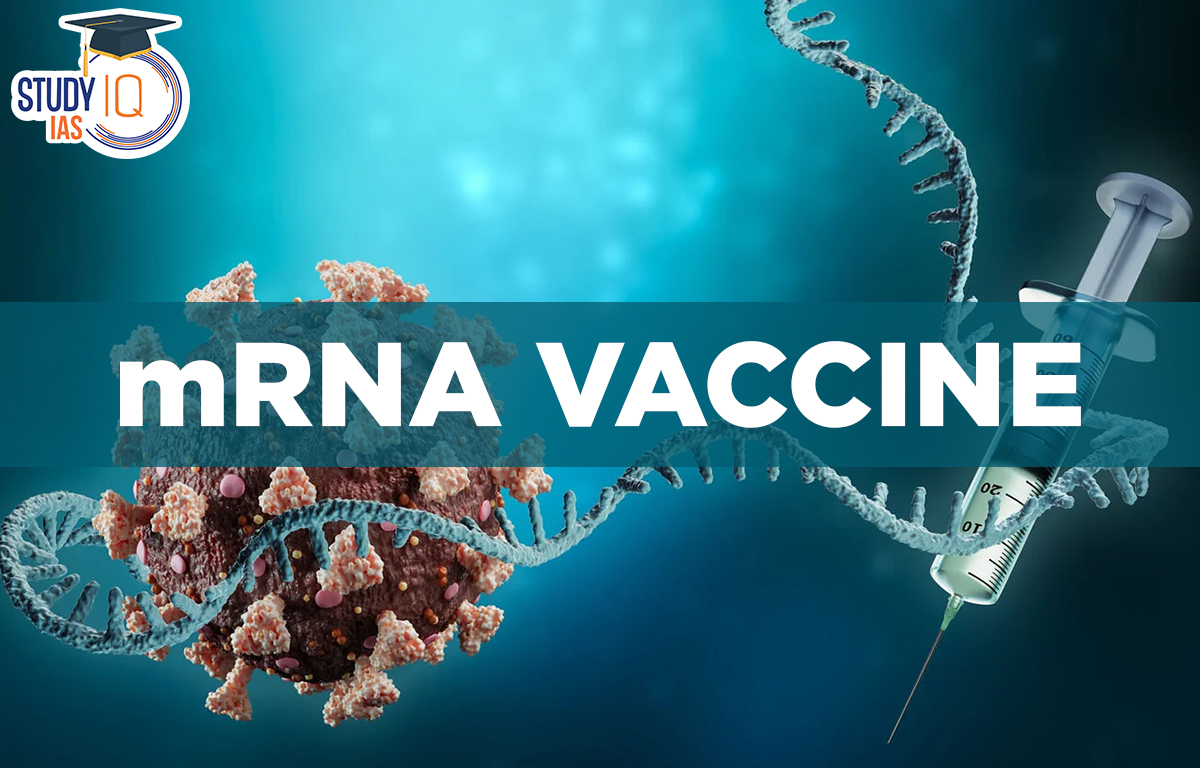Table of Contents
mRNA Vaccine News
- Patients on immunotherapy drug Keytruda for advanced melanoma were less likely to die or have the cancer recur, if they used the vaccine (mRNA-4157/V940).
- Trial: The trial involving 157 patients showed a 44% reduction in the risk of dying of cancer or having the cancer progress.
- This was the first randomised-trial testing of an mRNA therapeutic in cancer patients and it has shown higher benefits compared with Keytruda alone.
- Side-effects: Drug-related side effects occurred in 14.4% of patients who received the combination treatment compared with 10% with Keytruda alone.
- Cost: Since it is a personalised cancer vaccine, which is tailor-made for every patient, it is expected to be very expensive to make.
Melanoma:
- Melanoma is a type of skin cancer that develops in the cells (melanocytes) that produce melanin.
- Exposure to ultraviolet (UV) radiation from sunlight or artificial sources increases risk of developing melanoma.
Working of the mRNA Vaccines
- Principle: The vaccine uses the same messenger-RNA technology that was used to produce the COVID vaccine. It instructs the body’s immune system to seek and destroy cancerous cells.
- mRNA molecules are delivered to the body, which then instructs cells that take up the vaccine to produce proteins that may stimulate an immune response.
- The immune response is directed against those produced proteins when they are present in intact viruses or tumour cells.

Developing mRNA Vaccine for Treating Cancer
- The personalised cancer vaccine works in collaboration with Merck’s Keytruda, to disable a protein called programmed death 1 (PD-1) that helps tumours to evade the immune system.
- To develop the vaccine, researchers obtained samples of patients’ tumours and healthy tissue. They decoded the genetic sequence and isolated mutant proteins associated only with the cancer.
- The information was utilised to design a tailor-made cancer vaccine. When the vaccine was injected into the body, the patient’s cells produced perfect copies of the mutations for the immune system to recognise and destroy.
- Having been exposed to the mutations without the virus/cancerous cells, the body learns to fight off the infection.
Advantages and Disadvantages of mRNA Vaccine Technology
Advantages
- The mRNA offers strong safety advantages as it harbours only the elements directly required for expression of the encoded protein.
- Compared to viral-vectored vaccines, mRNA is non-infectious and poses no concern for DNA integration.
- The development is sequence-independent, making it highly adaptable to different pathogens
Disadvantages
- Since the process involves use of mRNA protein and platform, the vaccines are costly to manufacture.
- Anaphylaxis and antibody-dependent enhancements comprise the side-effects of the mRNA vaccine.
- Limited immunogenity compared to other vaccines.
Alternative Cancer Treatment Technology
CAR-T Treatment:
- Scientists extract immune systems cells, engineer them to target a specific cancer and insert them back in the body to kill cancer cells.
Bi specific Antibodies:
- Bi specific antibodies attach to immune system cells with one arm and cancer cells with the other. This brings powerful immune system killer cells right next to the cancer cells.


 Assam’s Majuli Hosts ‘Charaichung Fe...
Assam’s Majuli Hosts ‘Charaichung Fe...
 BlueBird-6 Satellite: ISRO to Launch Hea...
BlueBird-6 Satellite: ISRO to Launch Hea...
 UNEP Champions of the Earth Award: UN's ...
UNEP Champions of the Earth Award: UN's ...

























